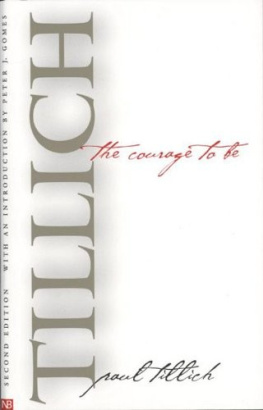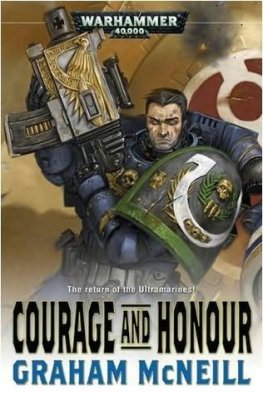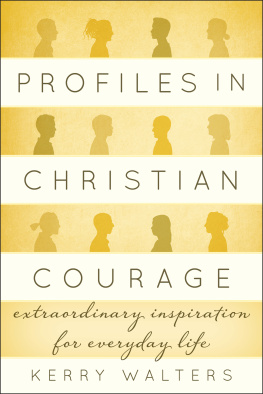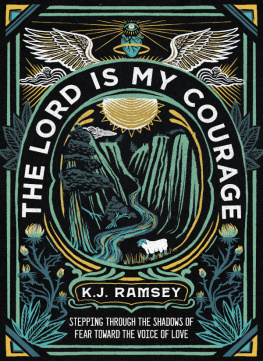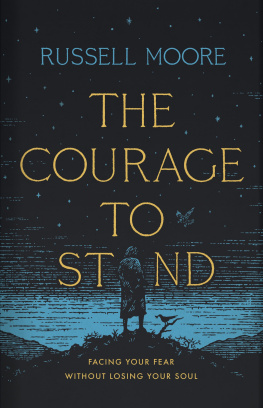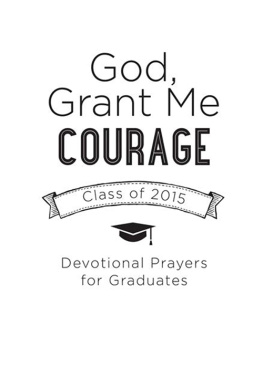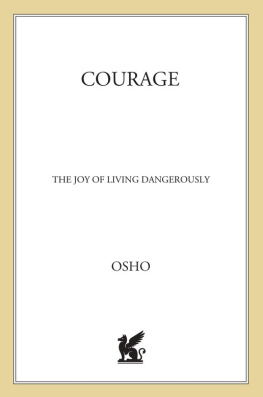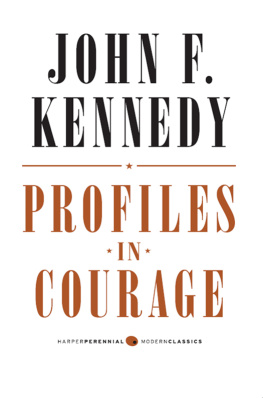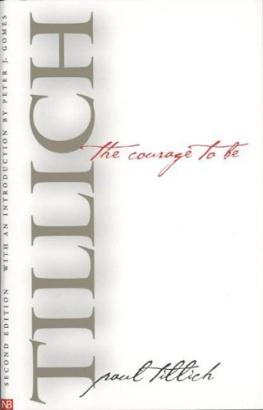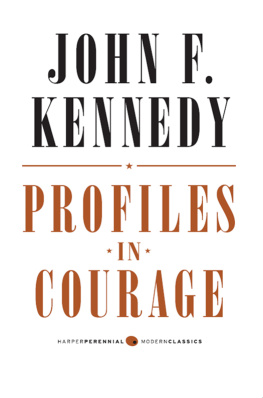THE COURAGE TO BE
SECOND EDITION
THE COURAGE TO BE
PAUL TILLICH
WITH AN INTRODUCTION BY
PETER J. GOMES

YALE NOTA BENE
YALE UNIVERSITY PRESS
NEW HAVEN & LONDON
First published as a Yale Nota Bene book in 2000.
Copyright1952 by Yale University Press.
Copyright renewed1980 by Hannah Tillich.
Introduction to the Second Edition copyright 2000 by Yale University.
All rights reserved.
This book may not be reproduced, in whole or in part, in any
form (beyond that copying permitted by Sections 107 and 108 of
the U.S. Copyright Law and except by reviewers for the public
press), without written permission from the publishers.
For information about this and other Yale University Press publications,
please contact:
U.S. office
Europe office
Printed in the United States of America.
Library of Congress Card Number: 00-102364
ISBN 0-300-08471-4 (pbk.)
A catalogue record for this book is available from the British Library.
10 9 8 7 6 5 4 3
For Ren
CONTENTS
INTRODUCTION
Few theologians have been able to capture the imagination of the modern world as Paul Tillich. He was one who, in the middle of the twentieth century, spoke convincingly to the crisis of spirit and mind that hovered over the religious life of thoughtful people. Described by an admirer as the Apostle to the intellectuals, Tillich, through his many writingsfirst in German and then in Englishprovided a new theological vocabulary with which to address the profound disquietude provoked by modernitys confrontation with death and meaninglessness. Admired by his fellow theologians as a theologians theologian, he was read by an ever-widening and appreciative circle of lay people for whom much of Christian theology and philosophy had proven itself inaccessible and irrelevant. By creating a new and dynamic theological vocabulary with which to examine the contemporary crisis of anxiety, Tillich liberated theology from the academy and gave it both a new audience and a new relevance in contemporary discourse.
Paulus Johannes Tillich was born in Germany in 1886 and educated at the Universities of Berlin, Tubingen, Halle, and Breslau. Ordained a minister in the Lutheran Church in 1912, he taught theology in universities in Germany until 1933, when he was deprived by the Nazis of his professorship. Admired by American colleagues, he was invited by Reinhold Niebuhr to teach at Union Theological Seminary in New York City, where he remained from 1933 until his appointment in 1955 as University Professor at Harvard. He left Harvard for the University of Chicago in 1962, where he taught until his death in 1965.
Of all of his many writings, none better captures the essence of Tillichs thought than The Courage to Be y published in 1952. He had long been well known and appreciated within the specialized world of theology and philosophy, but with the publication of this book he burst upon the wider cultural scene and became something of an American intellectual celebrity. The book became an indispensable classic, without which serious discussion about the meaning of life could not be undertaken, and it is virtually impossible to think of another book published in the twentieth century in the field of religion which had the immediate impact of The Courage to Be. No college reading list was complete without it, and its very title entered into the lexicon of theological conversation.
The book began as a set of lectures given under the auspices of the Terry Foundation at Yale University. The terms of the foundation required that the lectures concern themselves with religion in the light of science and philosophy, and Tillich chose as his subject the concept of courage because he was convinced that it was the place in which theological, sociological, and philosophical problems converged in such a way as to provide a useful analysis of the human situation. Courage, he wrote in the opening paragraph, is an ethical reality, but it is rooted in the whole breadth of human existence and ultimately in the structure of being itself. It must be considered ontologically in order to be understood ethically. This was the device with which he would examine modernitys most consuming crisis: meaninglessness and its discontents.
His lectures could not have come at a more paradoxical moment in American culture and religious life. The postwar recovery was well under way, and with it the rise of a cultural optimism in a country which had both won the war and defeated the depression: material prosperity was an ambition and a fact of life. America was now the defender of the free world, and with that fact came a sense of self-satisfaction and security. Religion participated in this boom culture with a marked increase in church attendance and an epidemic of church building programs across the country, which Time magazine called Americas religious edifice complex. Billy Graham was filling Americas largest public spaces with his crusades, Norman Vincent Peale was perennially on the bestseller list, and Bishop Fulton J. Sheen was almost as popular as comedian Milton Berle in the new leveling medium of television. At Harvard University, the new young president Nathan Marsh Pusey was busily reviving the moribund Divinity School with an infusion of new millions from John D. Rockefeller, Jr., and new and vigorous theologians. Tillich himself would join that faculty in 1955, and on March 16, 1959, his picture would grace the cover of Time magazine. Religion was experiencing one of its periodic flourishings in American life and, this time, it appeared to be here to stay.
Tillich, however, was not quite so persuaded of the depth or permanence of Americas latest revival of religion. In the middle of the religious boom of the 1950s, in an article entitled The Lost Dimension in Religion in the June 14, 1958, issue of the Saturday Evening Post, then the most popular magazine in America, Tillich wrote, If we define religion as the state of being grasped by an infinite concern we must say: man in our time has lost such an infinite concern. And the resurgence of religion is nothing but a desperate and mostly futile attempt to regain what has been lost. Tillich was not easily impressed by expressions of popular piety and the building boom in churches, and it was to the subject of what had been lost, the so-called lost dimension in religion, to which he turned in The Courage to Be.
In our age of intellectual specialization and the marginalization of religion from thoughtful society, and of compelling ideas from much of religion, it is difficult to imagine a theologian being taken seriously by anyone other than other sympathetic theologians. Paul Tillich, however, was taken very seriously by the culture at large, as well as by theologians. The publishers of Time and the Saturday Evening Post knew what they were doing when they gave over their pages to Tillich, for people were prepared to hear what he had to say even if they did not always understand it. He was, after all, the incarnation of the German Herr Doktor Professor. Tall and elegantly disheveled, he spoke ponderously and with a heavy German accent, theologys answer, as it were, to sciences Albert Einstein: an eminent intellectual who managed to capture the popular imagination.
From his platform as a professor at New Yorks Union Theological Seminary during the 1930s and 1940s, Tillich gained his reputation as a critical and articulate philosopher of culture, appealing to new audiences across the country eager for more than the popular preaching of the day. As a new generation of teachers of religion and philosophywho had heard and read him in their own student dayswent to fill appointments in Americas colleges and seminaries, they introduced their students to the work of Paul Tillich: by mid-century he was a ubiquitous figure on the college lecture circuit and beginning to have an impact.

